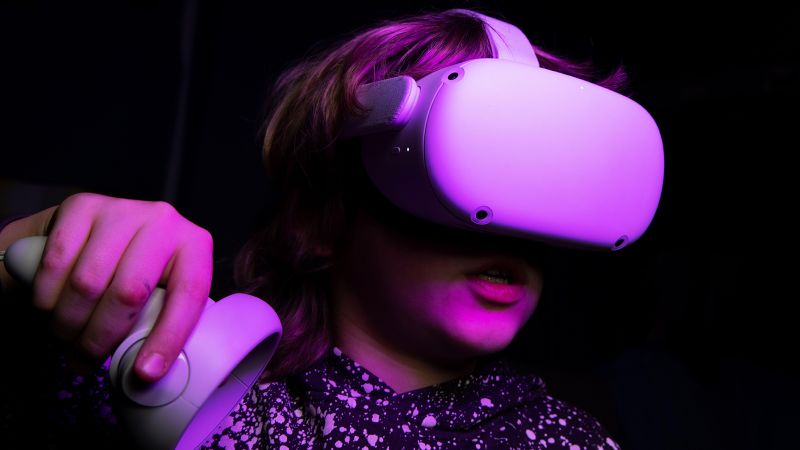Facebook-parent Meta plans to lower the minimum age for its virtual reality headsets from 13 years old to 10 years old, despite pressure from lawmakers not to market its VR services to younger users.
Parents will be able to set up accounts for children as young as 10 years old on Meta’s Quest 2 and Quest 3 headsets starting later this year, the company said in a blog post Friday.
Preteens will be required to get a parent’s approval to set up an account and download apps onto the device, according to the company. Meta said it will also use children’s ages to “provide age-appropriate experiences” such as recommending suitable apps.
“There’s a vast array of engaging and educational apps, games, and more across our platform, the majority of which are rated for ages 10 and up,” Meta said in the post.
The company’s push to lower the minimum age comes as Meta and other social media companies face growing scrutiny over their impact on young users, including their potential to harm teens’ mental health or lead them down harmful content rabbit holes.
Parents and lawmakers have also specifically raised alarms about the use of VR — and the future version of the internet Meta calls the “metaverse” — by teens and children.
Earlier this year, two Democratic senators urged Meta to suspend a plan to offer Horizon Worlds, the company’s flagship VR app, to teens between the ages of 13 and 17, arguing the technology could harm young users’ physical and mental health. The lawmakers, Massachusetts Sen. Ed Markey and Connecticut Sen. Richard Blumenthal, called Meta’s plan “unacceptable” in light of the company’s “record of failure to protect children and teens,” in a letter to CEO Mark Zuckerberg.
But in April, Meta forged ahead with its plan to allow teens as young as 13 in the United States and Canada to use Horizon Worlds, prompting additional outcry from lawmakers and civil society groups.
Parents told CNN last year about instances of discovering their children were viewing violent and disturbing content in VR and struggling to come up with ways to keep their kids safe.
Meta is attempting to address some of parents’ concerns.
In its Friday blog post, Meta said parents will be able to set time limits and enforce breaks for their preteens on the headsets. The accounts of users under 13 will be set to private and have their active status hidden on apps by default unless parents choose to change those settings. Meta also makes it possible to cast content from its VR headsets to a TV or phone screen, so parents can watch what their kids are seeing.
Meta said it will not serve ads to users in this age group, and that parents can choose whether their child’s data can be used to improve the company’s services. Meta added on Friday that Horizon Worlds will remain restricted to users 13 and older in the United States and Canada (and 18 and older in Europe) when it allows preteens to create parent-manged accounts on the headsets later this year.
Meta’s headset and Horizon Worlds represent Zuckerberg’s vision for a next-generation internet, where users can interact with each other in virtual spaces resembling real life. The company has so far struggled to attract a mainstream audience for these products.
Update: This story has been updated to reflect Meta’s plan to continue restricting Horizon Worlds to users 13 and older.
Read the full article here













